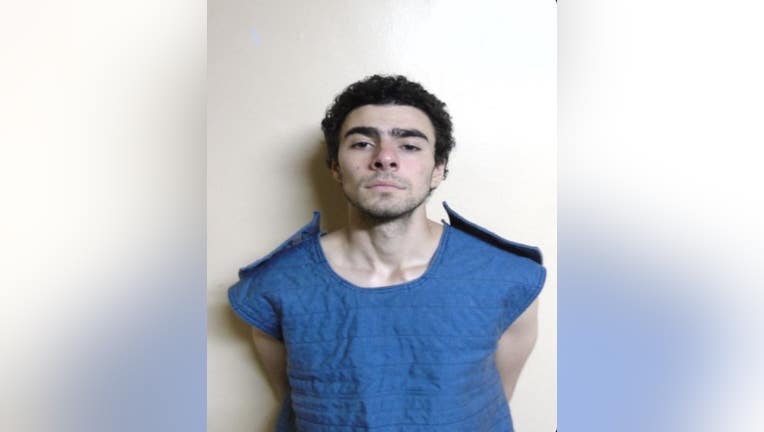Luigi Mangione: Societal support for alleged criminals isn't unprecedented

Booking photo for Luigi Mangione courtesy Pennsylvania Department of Corrections.
SAN JOSE, Calif. - Not long after officers handcuffed Luigi Mangione, his walk into custody also proved an ascent into notoriety.
"Sometimes communications online, particularly social media, can kind of give us an idea of where the public is at. And I don't think anybody can dismiss the fact that there are divergent opinions on this murder," said Dr. Nolan Higdon, a media studies expert at the University of California Santa Cruz.
While most Americans were horrified by the shooting death of UnitedHealthCare CEO Brian Thompson on Dec. 4, a demonstrative minority is flooding social media with words of support for the accused shooter, Mangione.
One website is soliciting donations for Mangione's legal defense fund. The page reads, "We are not here to celebrate violence, but we do believe in the constitutional right to fair legal representation."
The site's spokesperson sent an email response to KTVU which reads in part, "...(Our) mission has been to provide a platform for people to raise support during challenging times, regardless of their circumstances."
"Anonymous people or somewhat anonymous people have a lot of distance on social media and things like that. They're not actually in the room, if you will, with the perpetrator or the victim," said Dr. Thomas Plante, a psychologist at Santa Clara University.
Featured
UnitedHealthcare CEO shooting suspect Luigi Mangione shouts as he enters courthouse
Luigi Mangione, the man suspected in the targeted killing of UnitedHealthcare CEO Brian Thompson, shouted to a crowd of media members as he entered court in Pennsylvania on Tuesday for an extradition hearing.
Added Kennith Gray, a lecturer at the University of New Haven, "It's shocking to hear that some people are supportive of Luigi Mangione... Jury nullification is always a possibility, especially when it has caught the jurors' attention and is very popular."
Societal support for alleged criminals isn't unprecedented. Al Capone, and "Bonnie & Clyde" were notorious for committing crimes and murders in the 1930s but were still revered by some Americans for fighting against the system at a time of social strain.
Mangione seems to follow suit, but now with the advent of social media.
"I'm sure there are some people that might even go as far as to call this individual a hero in their estimation. And I think it speaks to how frustrated people are," said Higdon.
Added Plante, "Everybody nowadays has a bullhorn. I mean everybody. So, anybody can say whatever they want on social media. And in some respects, the more outrageous and the more provocative, the more likes and shares you get."
Experts said the free-for-all that's become freedom of expression, enhanced by social media beyond what was seen decades ago, could be weakening the social compact, and weakening the ties that used to unite society.
Jesse Gary is a reporter based in the station's South Bay bureau. Follow him on the Instagram platform, @jessegontv and on Facebook, @JesseKTVU


